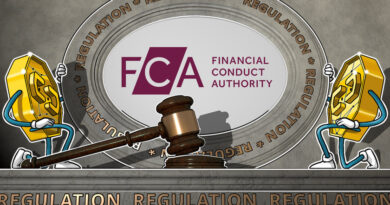SEC votes to simplify exempt offering rules for securities
“While each component in this patchwork system makes some sense in isolation, collectively, there is substantial room for improvement.”
The United States Securities and Exchange Commission voted to amend a set of rules to simplify and improve the “overly complex” procedures for exempt securities offerings.
According to an announcement Monday from the SEC, the proposed changes aim to “harmonize, simplify, and improve” the existing “overly complex” framework to make it easier for companies to conduct offerings while still protecting investors. The regulatory body stated that the amendments would “address gaps and complexities” in the current exempt-offering framework, facilitating access to investment opportunities for investors and to capital for securities issuers.
“For many small and medium-sized business, our exempt offering framework is the only viable channel for raising capital,” said SEC Chairman Jay Clayton. “These businesses and their prospective investors must navigate a system of multiple exemptions and safe harbors, each with different requirements. While each component in this patchwork system makes some sense in isolation, collectively, there is substantial room for improvement.”
Many of these attempts at improvement include the SEC voting to raise the maximum offering amount under Tier 2 of Regulation A from $50 million to $75 million for initial sales — which includes many token offerings — and from $15 million to $22.5 million for secondary sales. Likewise, the commission would expand the maximum offering amount for sales under the Regulation D framework from $5 million to $10 million.
The SEC also voted to change its Regulation Crowdfunding offering guidelines, raising the limit from $1.07 million to $5 million, and removing investment limits for accredited investors. The temporary measures the commission introduced in May amid the economic crisis in the U.S. will be extended for 18 months, allowing firms that raise up to $250,000 over 12 months to qualify for an exemption.
Other modifications to the SEC framework include regulations on communications. The commission voted to allow regulation crowdfunding issuers and securities issuers to “test the waters” with the SEC to determine which exemption they would use for their sales, and ensure that communications from companies showcasing their securities offering “will not be deemed general solicitation or general advertising.”
Under current regulations in the U.S., securities offerings — which include initial coin offerings — must either be registered with the SEC or qualify for an exemption. Many entrepreneurs, emerging businesses, and experienced securities issuers raise capital using the exempt-offering framework.
The SEC has seemingly taken a “regulation through enforcement” approach toward many crypto projects that it believes have broken existing regulations around unregistered securities. The department’s case against Telegram resulted in the company abandoning its planned open network and linked Gram tokens, which had previously raised $1.7 billion.
The regulatory body first proposed simplifying the existing framework in June 2019 and announced in March that it had voted on a proposition to introduce the set of rule changes. According to the SEC, the majority of the amendments will be effective 60 days after publication in the Federal Register.




